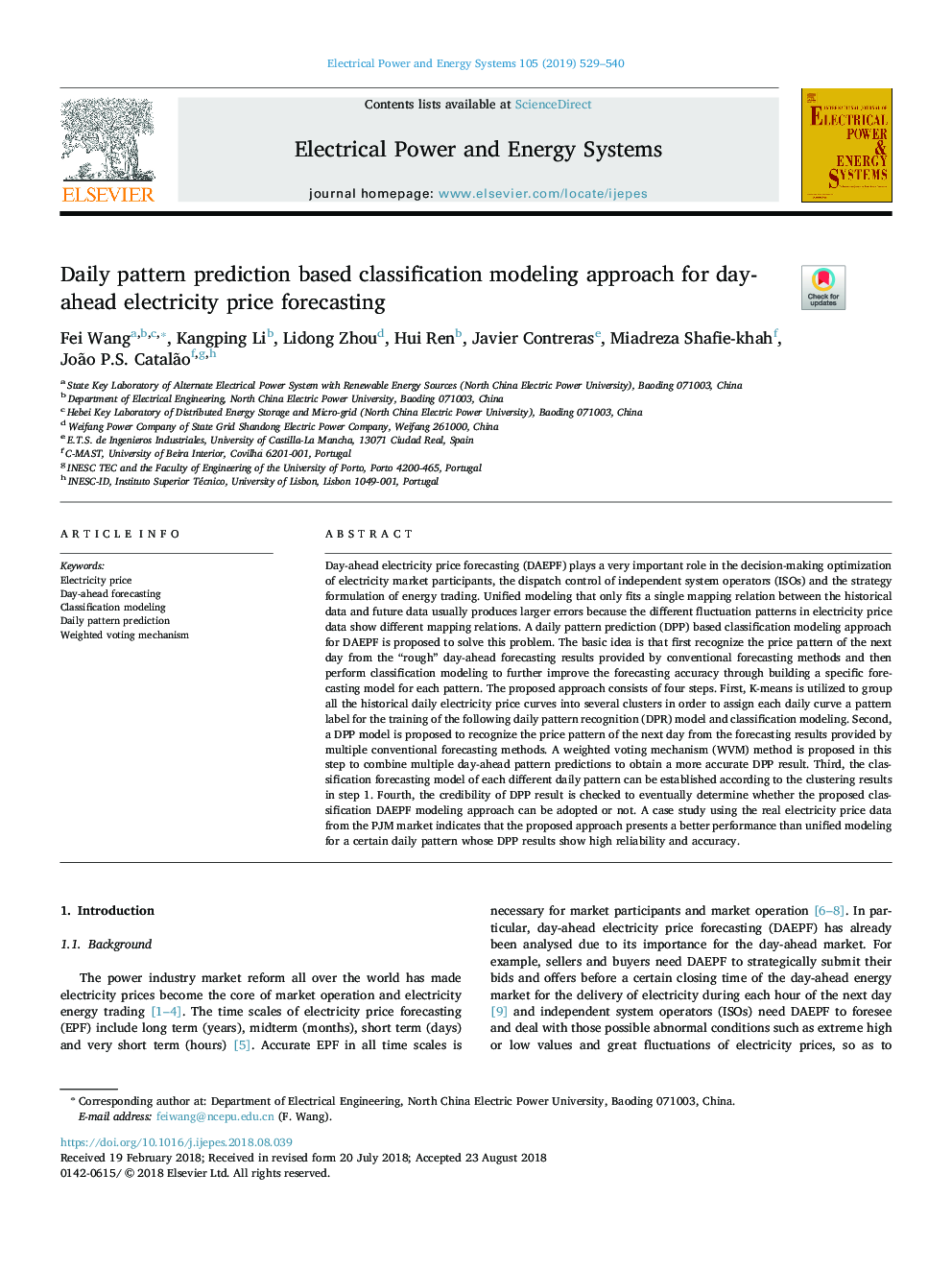| Article ID | Journal | Published Year | Pages | File Type |
|---|---|---|---|---|
| 9952134 | International Journal of Electrical Power & Energy Systems | 2019 | 12 Pages |
Abstract
Day-ahead electricity price forecasting (DAEPF) plays a very important role in the decision-making optimization of electricity market participants, the dispatch control of independent system operators (ISOs) and the strategy formulation of energy trading. Unified modeling that only fits a single mapping relation between the historical data and future data usually produces larger errors because the different fluctuation patterns in electricity price data show different mapping relations. A daily pattern prediction (DPP) based classification modeling approach for DAEPF is proposed to solve this problem. The basic idea is that first recognize the price pattern of the next day from the “rough” day-ahead forecasting results provided by conventional forecasting methods and then perform classification modeling to further improve the forecasting accuracy through building a specific forecasting model for each pattern. The proposed approach consists of four steps. First, K-means is utilized to group all the historical daily electricity price curves into several clusters in order to assign each daily curve a pattern label for the training of the following daily pattern recognition (DPR) model and classification modeling. Second, a DPP model is proposed to recognize the price pattern of the next day from the forecasting results provided by multiple conventional forecasting methods. A weighted voting mechanism (WVM) method is proposed in this step to combine multiple day-ahead pattern predictions to obtain a more accurate DPP result. Third, the classification forecasting model of each different daily pattern can be established according to the clustering results in step 1. Fourth, the credibility of DPP result is checked to eventually determine whether the proposed classification DAEPF modeling approach can be adopted or not. A case study using the real electricity price data from the PJM market indicates that the proposed approach presents a better performance than unified modeling for a certain daily pattern whose DPP results show high reliability and accuracy.
Keywords
Related Topics
Physical Sciences and Engineering
Computer Science
Artificial Intelligence
Authors
Fei Wang, Kangping Li, Lidong Zhou, Hui Ren, Javier Contreras, Miadreza Shafie-khah, João P.S. Catalão,
